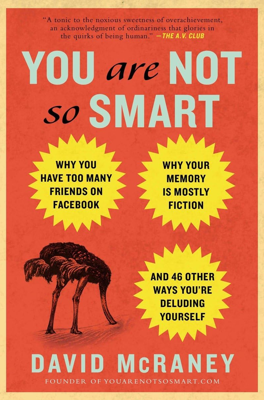Confirmation Bias
Misconception vs. Truth
Misconception:
Your opinions are the result of years of rational, objective analysis.
Truth:
Your opinions are the result of years of paying attention to information that confirmed what you believed, while ignoring information that challenged your preconceived notions.
What is Confirmation Bias?
- Definition: Confirmation bias is the tendency to search for, interpret, and remember information that confirms one's existing beliefs and ignore information that contradicts them.
- Everyday Examples:
- Noticing more references to something recently discussed (e.g., an old movie).
- Seeing more of a certain make of car if you're considering buying it.
- Hearing more love songs after ending a relationship.
Influence on Media Consumption
- Punditry and Media: People tend to follow news outlets and opinion pieces that reinforce their beliefs.
- Selective Exposure: Look for sources that confirm pre-existing views, whether in media, books, or social networks.
Research and Studies
- 2008 U.S. Presidential Election: Valdis Krebs analyzed Amazon book purchasing trends and found that people buy books that align with their political beliefs, not for new information but for confirmation.
- Mark Snyder and Nancy Cantor (1979):
- Study on how individuals recall information about a person (Jane) differently based on the job they were asked to consider her for, showcasing confirmation bias in memory.
- Ohio State Study (2009):
- People spend 36% more time reading essays that align with their opinions.
- Viewers of "The Colbert Report" interpreted its satire differently based on their own political leanings.
Psychological and Practical Implications
- Impact on Memory: Confirmation bias influences not just perceptions but also how memories are recalled and interpreted.
- Formation of Beliefs: Over time, consistently seeking confirming information can solidify beliefs, making them resistant to change.
- Critical Thinking: To move closer to the truth, whether in science or personal beliefs, seek evidence that challenges rather than just supports your views.
Practical Suggestions
- Balanced Information Consumption: Engage with sources that offer differing perspectives to avoid reinforcing biases.
- Critical Analysis: Apply methods of critical thinking and skepticism to your opinions and beliefs to avoid falling into the trap of confirmation bias.
